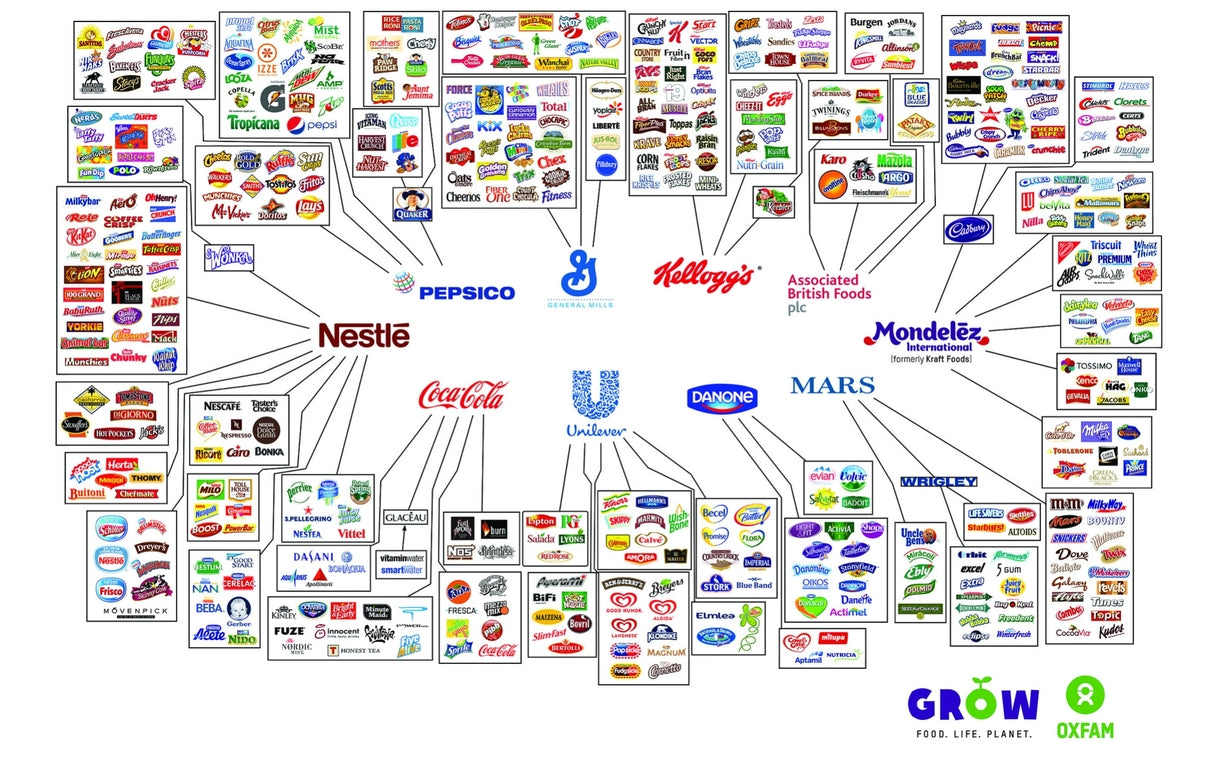The story of food for the past hundred years has been one of industrialization. This is true of farming — we’ve gone from horses to 600 horsepower tractors — but it is just as true of food processing. While canned food has existed since the 1800s, it only became commonplace in the 20th century, which is also when the techniques needed to combine individual starches, proteins, fats, colorings, flavors, and preservatives into novel foods came online. The result of these techniques is ultra-processed food, or UPF.
Populations of developed and developing countries around the world have exchanged diets based on whole ingredients for ones in which prepackaged foods make up an ever larger share. We’ve traded meat and potatoes for fast food burgers and fries, a trade that has made many of us unhealthy while making food processors rich.
The business model of the food system relies on processing. The value comes from taking cheap ingredients like derivatives of corn and soy, adding other ingredients to make them taste good, putting them in attractive and convenient packaging, and then marking up the price. A food company pays pennies for the actual calories in a bag of chips, then sells it for several dollars. All the margin comes from proprietary processing techniques and good marketing.
But this means the food system as we know it runs on ultra-processed food. Remove UPF and the vast majority of the companies that churn out the colorful boxes and bags that fill supermarket shelves would have no reason to exist. Quite simply, they would not make any money.
This is a huge challenge. Recognizing the dangers of UPF threatens hugely profitable multinational corporations. If there is no possible accommodation, no way to make healthy UPF, no good alternative to eating more real food and less Pringles, then any movement that seeks to reduce or remove UPF from diets poses an existential threat to the Coca-Colas of the world, and big companies are not known for willingly participating in their own demise.
I would expect strong pushback to any government recommendations that people categorically avoid or even seek to limit UPF, let alone efforts to label UPF, require health warnings on it, or any more extreme measures to limit its proliferation. I would expect strong pushback from industry funded researchers and nutritionists to the notion that UPF as a whole can rightly be blamed for anything, rather than too much sugar, too much fat, or too much something else that could be tweaked without actually changing the fundamental economics of food processing.
But I also see real possibility here. The story of ultra-processed food and the companies that make it is one of endless expansion; whenever any trend takes off, be it reducing fat or sugar, or labeling like “organic” or “non-GMO,” the food industry incorporates it, making low fat or low sugar ice cream or organic frozen pizza.
Broad skepticism of UPF would undercut this dynamic. The only way to make potatoes or lettuce or beef special is at the farm level. Consumers trying to find high quality, simple ingredients could, at least in theory, end up getting more food from small farms rather than big companies.
I’ll be the first to admit that even if a trend away from UPF and towards real food develops it is unlikely to be powerful enough to bring down Kraft and General Mills. But such things take time, and what starts small can grow. Replacing even a modest proportion of UPF in our diets could only be for the good, and who knows what the food landscape will look like in a few decades. It’s nice to think there’s at least a possibility it will be better.



1 comment
It seems odd, almost, that our family meals rarely contain any UPF (that doesn’t count all the junk food our kids buy at Wawa). While we DO eat processed food (pasta, for example), rarely does any UPF sneak in. Even our sausage is made from our own lamb, process in a local abattoir (I’ve not yet got the time to make my own, although I do have a grinder…). Dinner tomorrow will be shepherd’s pie, with our own ground lamb, peas, carrots, potatoes and probably a little corn starch. Note: those of you who make Shepherd’s Pie with ground beef should be in prison. :-). Most of our meals are like this and we’ve found that we don’t miss the hamburger helper, macaroni and cheese (ok, “I” miss it…) but whole wheat elbows and real cheddar cheese sauce is awesome (oh Velveeta, I loved you!). Do we use some processed foods? Sure. Soy sauce, Sriracha, etc., But with a little planning, cooking real food doesn’t take much time.